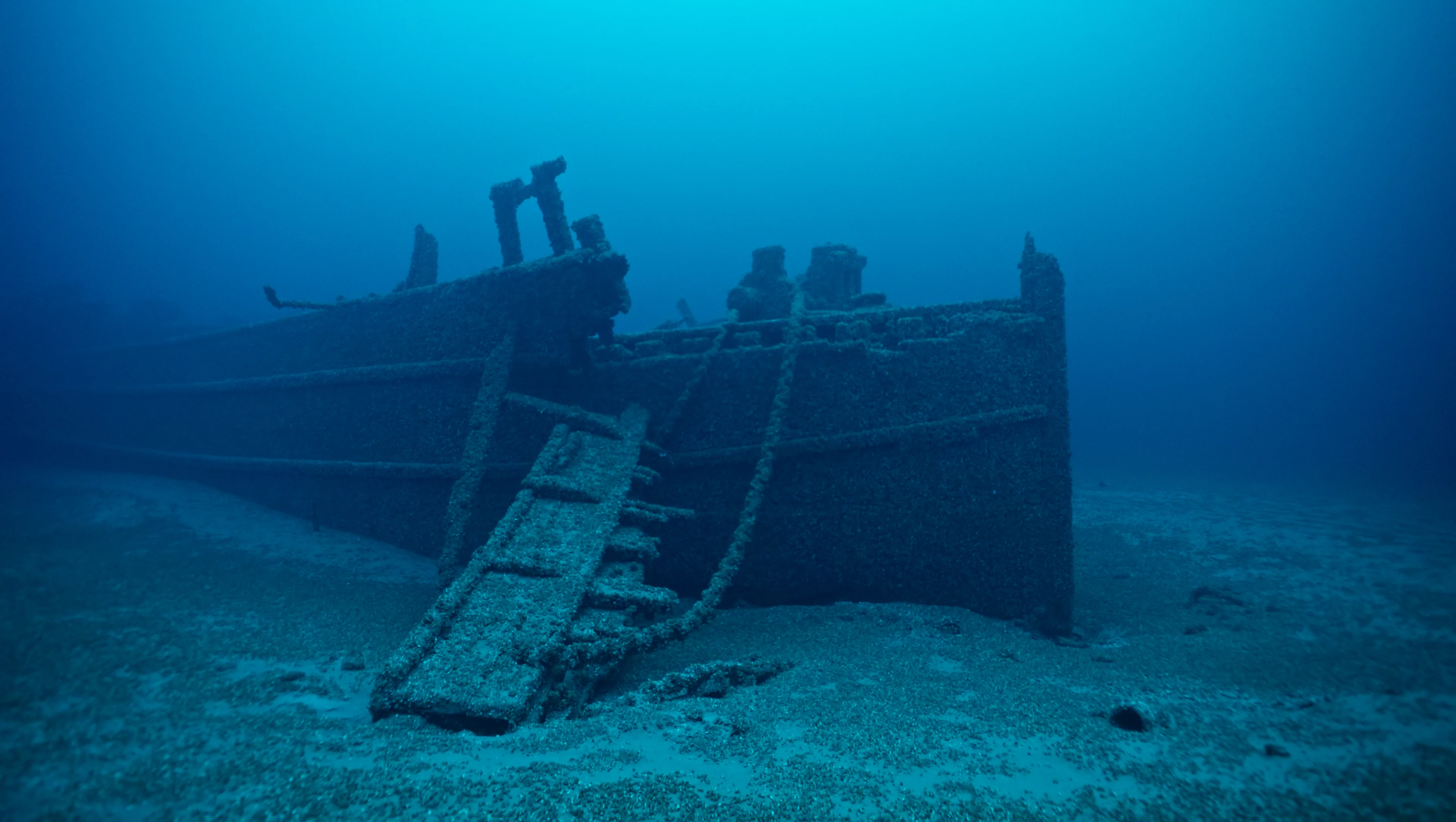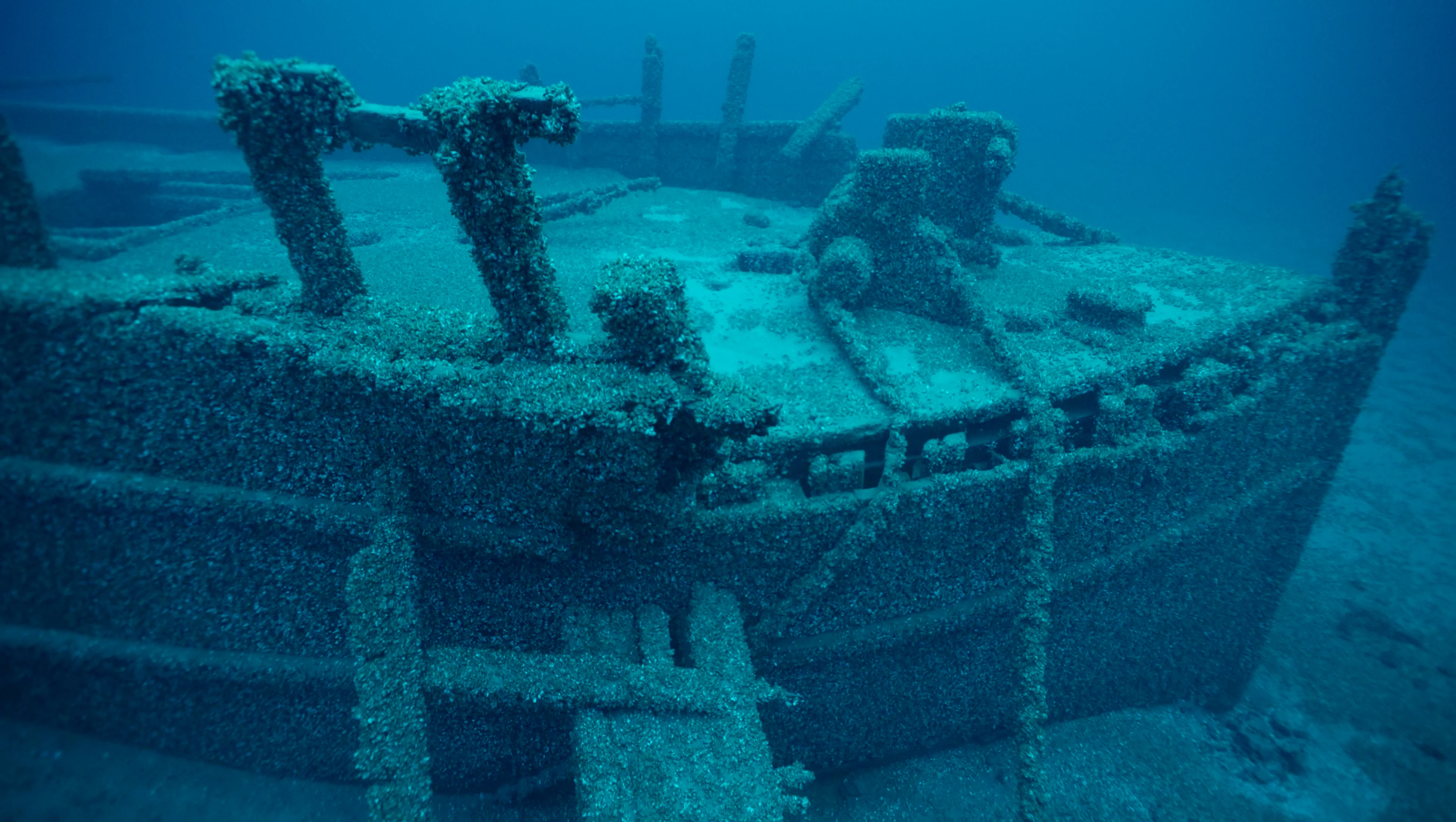
Canadian film crew uncovers century-old shipwreck in stunning Lake Huron find
While shooting a documentary about mussels in the Great Lakes, a crew made an unexpected discovery in the depths of Lake Huron. The Weather Network's Victoria Fenn Alvarado caught up with the filmmakers to discuss what they found.
Zach Melnick and Yvonne Drebert are documentary filmmakers studying the ecological impacts of the Great Lakes. Using a high-tech underwater drone, the Inspired Planet Productions team is able to capture footage that very few people have ever witnessed before. During their filming process, the remarkable discovery of the shipwreck was made. Drebert and Melnick took The Weather Network’s Victoria Fenn Alvarado out in their boat on Lake Huron to show her firsthand how they found this historical treasure.
During one wavy Saturday, the filmmakers behind the production team, Inspired Planet Productions, headed out to the western side of the Bruce Peninsula, where they set their drone down into the lake.
A typical visual in the depths of Lake Huron is a deserted land filled with quadrillions of invasive quagga mussels, which they, of course, saw.
But, as they kept exploring, they never imagined what they'd encounter.
“Out of the sands of time, this huge shipwreck comes into focus,” Drebert said.
Melnick and Drebert took notice of the wooden frame and steam sack attached to the shipwreck. This was a pivotal moment for the production team. Melnick's initial observation was that “we have a wooden steamship, perfectly preserved on the bottom of the lake, that nobody knew about.”
SEE ALSO: Inside the battle to preserve the underwater ghosts of Ontario's Great Lakes

Filmmakers Zach Melnick and Yvonne Drebert. (Submitted)
Unbeknownst to them, what they had found was the wreckage of the steamship Africa, an American cargo steamer that had been lost for over a century.
Built in 1873, the ship is described by Drebert as "the transport truck of the 1800s”. A key observation that helped them confirm that this was indeed the Africa was that they found coal lying all around the sunken vessel.
Drebert and Mlenick teamed up with marine archaeologists and historians to find the history behind this mysterious ship. Throughout their research, they discovered that the Africa was caught in an “early season snow storm.”
“At first, the wind was really agreeable coming from the south," Drebert said. "But then it started changing, moving westward, and then coming from the north.”
This caused the unfortunate deaths of 11 sailors.
This story became personal for Melnick and Drebert as they did more digging. Ironically, the filmmakers live in a community called “Larson Cove," named after the captain of the Africa, Hans Larsson. Once the news was out that they had found the ship, three of the great-grandchildren of Captain Larsson reached out to Melnick and Drebert.
“So we're going to work with them to try to find a way to honour these sailors who went down 128 years ago; we're going to take them out to the wreck next year and just give them a moment to reflect about what happened to their ancestors. And then after that, try to find a way to memorialize them at the local museum," shared Melnick.
Thanks to their discovery, the Africa is now protected under Ontario law as a historic archeological site.

The Africa is now protected under Ontario law as a historic archeological site. (Photo: Zach Melnick and Yvonne Drebert)
Research Continues
“We quickly realized that people were going to be a lot more excited about finding a shipwreck that's 130-years-old, then they were about a little invasive mollusk," Melnick explained. "So we're using the story of the shipwreck to really try to bring this story of this epic ecosystem change that's happened that almost nobody knows about in the Great Lakes.”

Another view of the shipwreck, Africa, shows a broken bow. (Credit: Zach Melnick and Yvonne Drebert)
Drebert and Melnick continue to explore the depths of the Great Lakes and look forward to sharing their featured documentary, All Too Clear, premiering in 2024 on TVO and available on streaming platforms for free across Canada.
Watch the video that leads this article to learn more.











